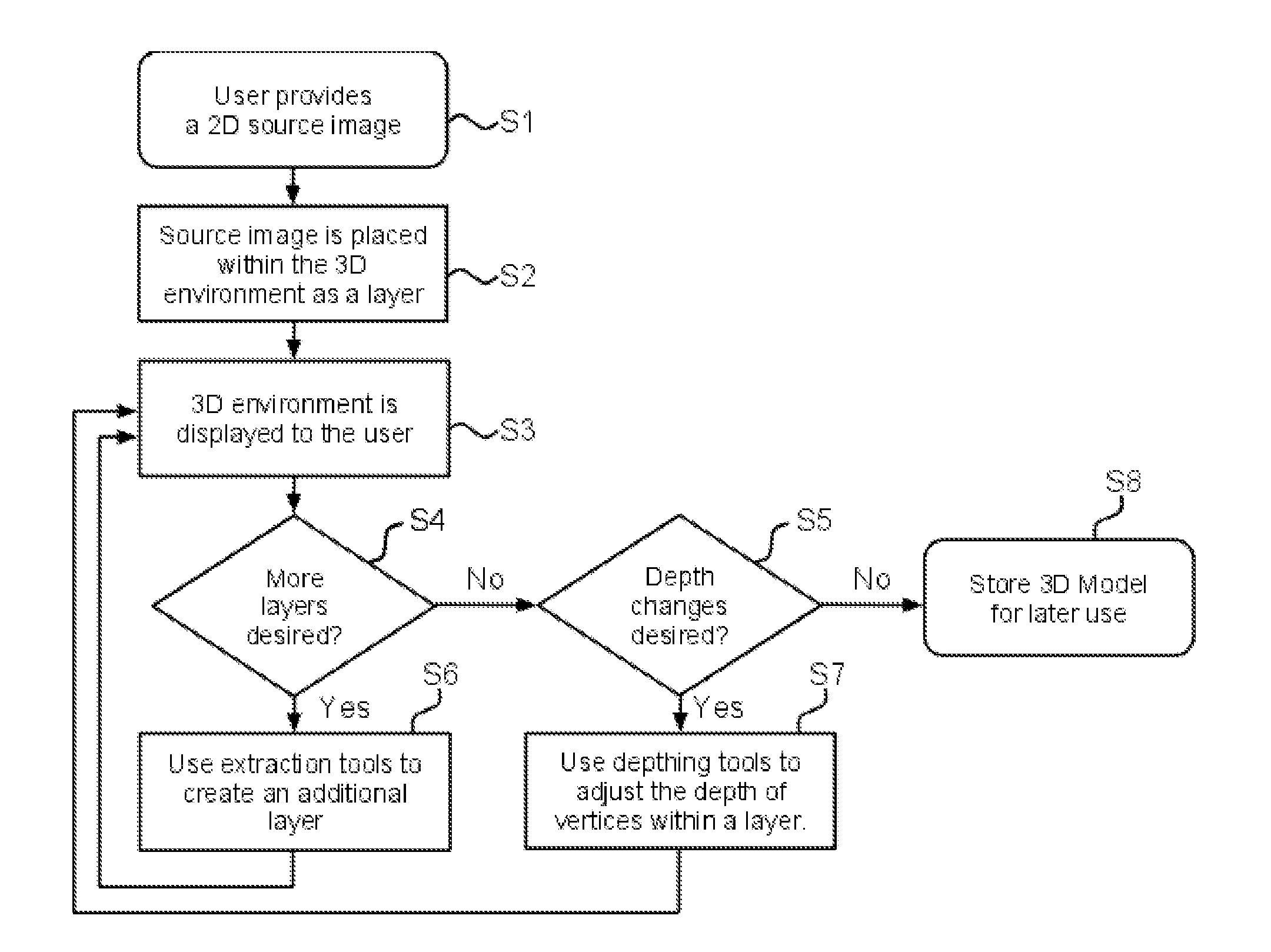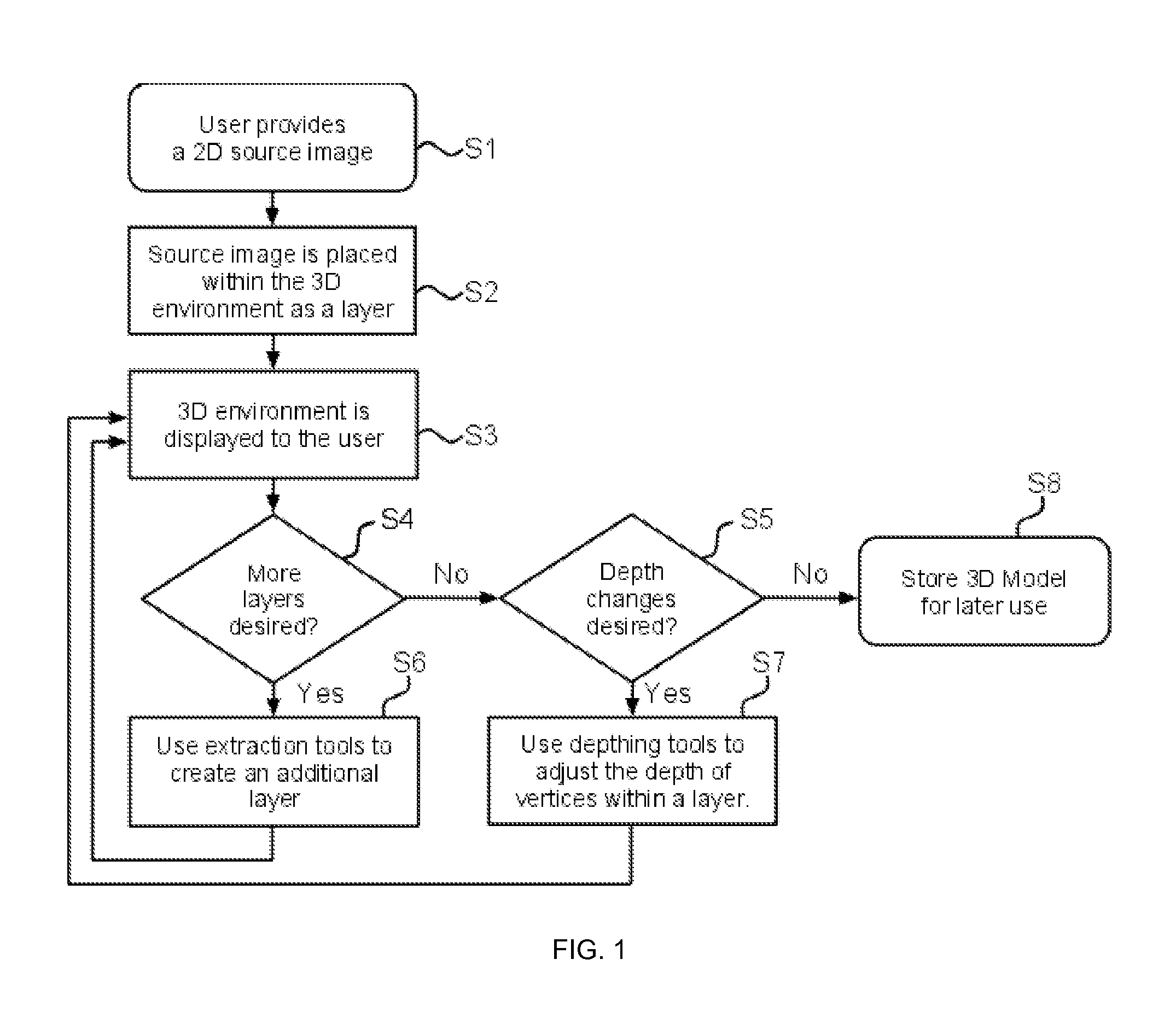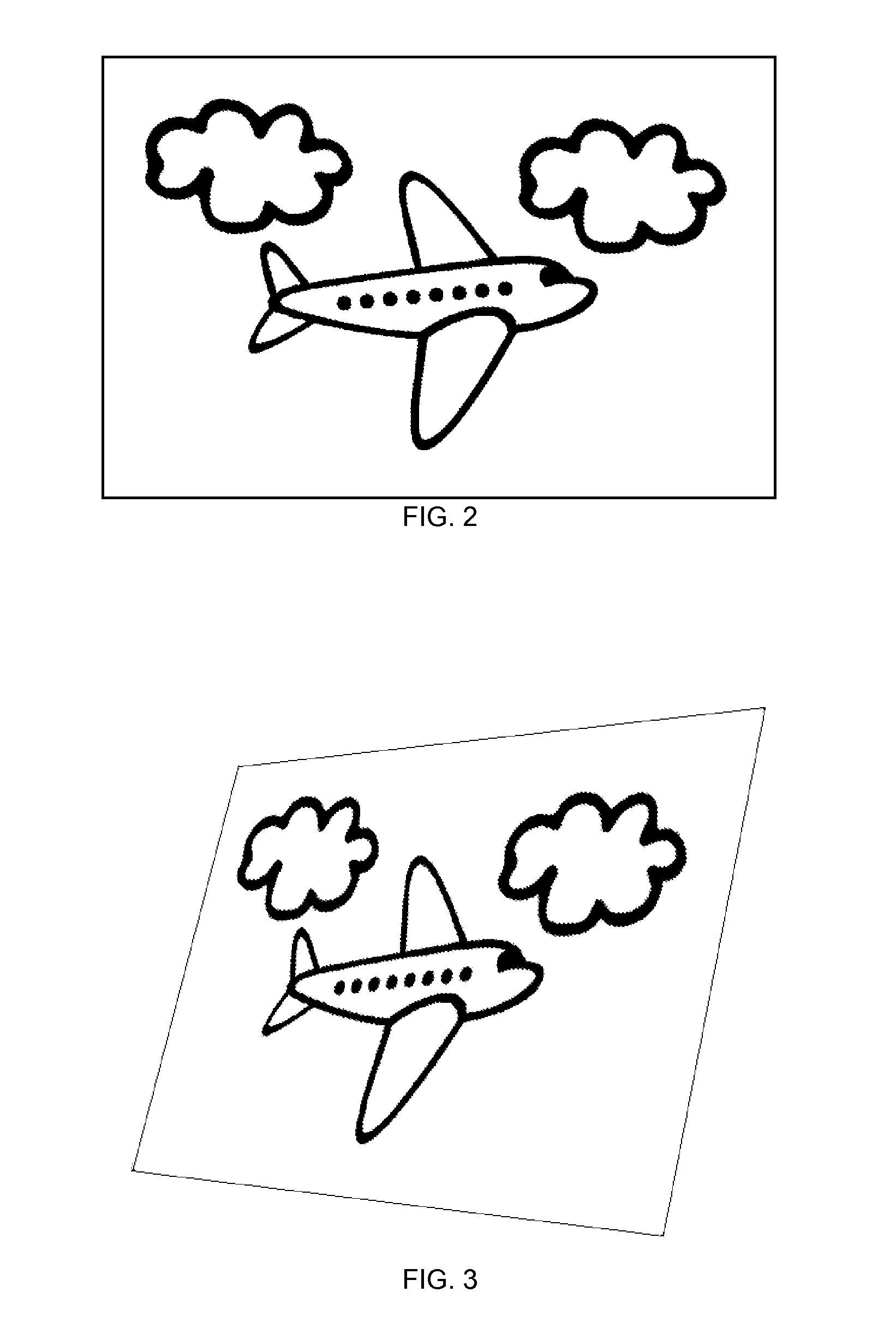Method for creating a 3-dimensional model from a 2-dimensional source image
- Summary
- Abstract
- Description
- Claims
- Application Information
AI Technical Summary
Benefits of technology
Problems solved by technology
Method used
Image
Examples
Embodiment Construction
[0027]In the current embodiment, the 3D environment is provided using the web-based Adobe Flash 3D framework. Continuous surfaces, called layers, may be placed within the 3D environment. Each layer comprises a multitude of vertex points (vertices), the corresponding vertex positions within the 3D environment, and a texture mapping which specifies planar regions of pixels to be drawn onto the layer between the vertices. Each vertex has a position specified by an x, y, and z value. The z value is also referred to as the depth. Layers often contain hundreds of vertices which are spaced at regular intervals in a grid-like manner. Although the regions drawn between the vertices are planar, a large number of closely spaced vertices can create the illusion of smooth curvature across a layer with depth variation.
[0028]Referring to the flow chart shown in FIG. 1, a process for creating a 3D model from a 2D source image will be described.
[0029]At Step S1, a 2D source image is provided by the ...
PUM
 Login to view more
Login to view more Abstract
Description
Claims
Application Information
 Login to view more
Login to view more - R&D Engineer
- R&D Manager
- IP Professional
- Industry Leading Data Capabilities
- Powerful AI technology
- Patent DNA Extraction
Browse by: Latest US Patents, China's latest patents, Technical Efficacy Thesaurus, Application Domain, Technology Topic.
© 2024 PatSnap. All rights reserved.Legal|Privacy policy|Modern Slavery Act Transparency Statement|Sitemap



